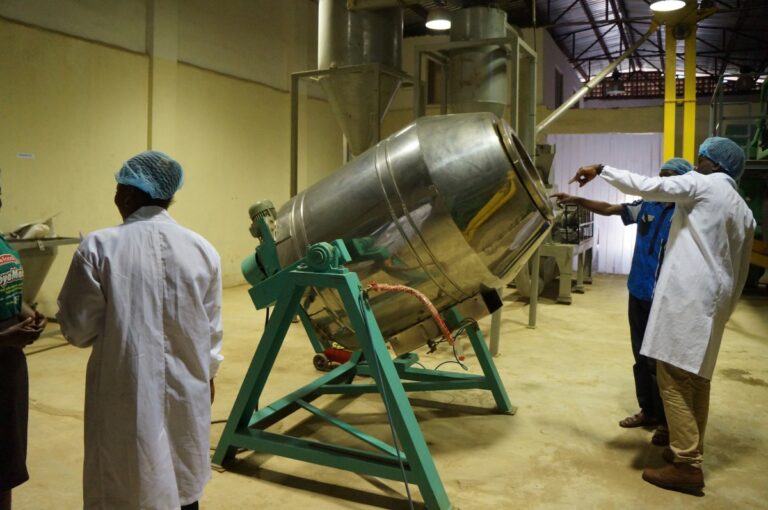Nigeria’s economy is at a crossroads. Despite being Africa’s largest market and resource hub, its manufacturing sector contributes only 9.62 per cent of GDP—well below the global leaders such as China (≈30 per cent) and even below South Africa, Africa’s best performer at 13 per cent. This shortfall is not merely a number; it is the missing link in Nigeria’s quest for sustainable growth, job creation, and stronger global trade competitiveness.
From Raw Materials to Finished Products
The question Nigeria must confront is straightforward: what exactly are we exporting, and in what form? Today, much of the country’s exports are raw materials shipped abroad without any real value addition. This practice bleeds the economy of opportunities, leaving Nigeria to import back processed goods at higher costs.
Manufacturing offers a solution. It is the best job creator, capable of absorbing millions into employment, while also boosting foreign exchange earnings. The Dangote Refinery offers a clear lesson: once it came on stream, Nigeria’s reliance on imported petroleum products shrank significantly, saving billions of dollars. That same principle applies across textiles, footwear, electronics, and agro-processing—sectors where local demand is massive, yet imports dominate.
Competing With the Giants
Can Nigeria realistically compete with industrial heavyweights like China? The answer is yes—but only if it builds a strong manufacturing base. No nation has leapt into prosperity by bypassing manufacturing. “Look around at the basics—shoes, shirts, glasses, even books. Most of these are made abroad. That is not right,” argues one industry leader.
Nigeria must manufacture the essentials domestically while strategically importing only what is critical. Encouragingly, several Nigerian companies already outperform imports in price and quality. The problem? Many operate discreetly, wary of over-taxation and regulatory harassment, surviving without even a signboard.
AfCFTA, BRICS and the Shifting Trade Landscape
Nigeria’s early adoption of the African Continental Free Trade Area (AfCFTA) could be transformative. Africa is rich in resources, but fragmented into small markets. AfCFTA creates scale, allowing Nigerian manufacturers to source raw materials from Kenya or Congo, process them locally, and export across a borderless African market.
Membership in BRICS also offers opportunities, particularly as U.S. tariffs disrupt traditional trade patterns. While tariffs will hurt in the short term, they could push African economies toward trading more with each other—forcing AfCFTA into practical reality.
Breaking the Barriers to Non-Oil Trade
Nigeria’s non-oil exports accounted for 15.38 per cent of total exports in Q1 2025, showing potential but also revealing the long road ahead. Bureaucracy, poor roads, and port congestion make export unnecessarily expensive and frustrating. Yet Nigerian entrepreneurs—resilient and battle-tested—continue to push through. “If you can survive as an entrepreneur in Nigeria, you can survive anywhere,” as one observer put it.
What Will Unlock Manufacturing?
Several elements must align:
-
Entrepreneurship at Scale
Nigeria is full of entrepreneurs, but most remain small-scale. To move from hustle to industry, they need structural support. -
Financing
Access to affordable financing remains the Achilles’ heel. While the government has floated low-interest loan schemes, banks often distort them, leaving manufacturers saddled with high rates. Without genuine single-digit interest loans, scaling is impossible. -
Strategic Leadership
Manufacturing must become a national priority, led from the very top of government. This is how China and India industrialised—clear direction, removal of barriers, and strategic coordination between state and private sector. -
Collaboration Within Industry
Nigerian manufacturers need to trust and share knowledge. In places like Germany, industry associations regularly convene technical exchanges, facilitated by groups like VDMA. Nigeria lacks this culture due to a low-trust environment, but building it will be essential for long-term growth. -
Skills and Education Reform
The skills gap is glaring. Nigeria’s education system produces more university graduates than the economy needs, while neglecting vocational and technical training. Manufacturers need skilled technicians more than degree-holders. Revamping vocational schools, as Nigeria once had in the 1960s and 1970s, is vital. Education must align with economic needs, guiding students towards careers where their talents fit—whether carpentry, mechanics, photography, or industrial trades.
A Manufacturing Renaissance Is Possible
Nigeria has the entrepreneurs. It has the raw materials. It has the market. What it lacks is coordinated leadership, infrastructure, financing, and skills. If these are fixed, manufacturing could easily double its contribution to GDP and reposition Nigeria as Africa’s industrial powerhouse.
The resilience of Nigerian entrepreneurs shows that the potential is real. The question is whether government, private sector, and society can align to turn resilience into renaissance.

